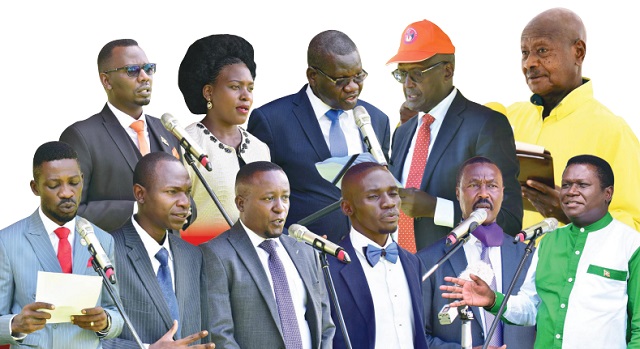
Why each vote could cost Shs 50,000
COVER STORY | RONALD MUSOKE | There is growing concern over the ever-rising cost of holding general elections in the country. For example, an election expert told The Independent recently that whereas the average cost of conducting elections globally is about US$ 5 per voter, the cost per voter on average in Uganda has steadily been going up with the per capita cost rising from US$ 7.1 in 2011 to US$ 8.7 in 2016 and US$ 12 in 2021.
Justice Simon Byabakama, the Chairperson of the Electoral Commission has presented a Shs 1.3 trillion budget to the government saying this is the amount that will enable him organize and conduct a free and fair election in 2026. With an estimated 24 million voters expected to be registered for the 2026 election, the cost per voter on average would be US$14. That would be the highest cost ever.
Justice Byabakama revealed the big budget while speaking on August 2 in Kampala during the unveiling of the EC’s five-year strategic plan that runs from FY2022/23-2026/2027 and is expected to guide the 2026 general elections. He reiterated the importance of the timely release of financial resources if the EC is to deliver a credible general election.
And Prime Minister Robinah Nabbanja who was the Chief Guest at the launch of the EC’s strategic plan assured Justice Byabakama that “As Leader of Government Business, I undertake to ensure that the required funds will be allocated and released adequately in a timely manner for the smooth running of the EC’s activities.”
Godber Tumushabe, the Associate Director of the Great Lakes Institute for Strategic Studies, a Kampala-based public policy thinktank told The Independent on Aug.4 that Ugandans cannot run away from costly general elections.
“You cannot have an expensive government and not have an expensive election,” Tumushabe told The Independent. “As long as we still have President Museveni as life president and as long as we still have a corrupt group as the NRM, it is inevitable for us to have costly general elections.”
Officials at the Electoral Commission say there is nothing they can do about it. They point to the cost drivers being an increase in the voter population, an increased number of candidates nominated for elections, increased number of elective offices, and an increased number of polling stations. There has also been an increased number of administrative units (villages, parishes, sub-counties/town councils, municipalities/city divisions and districts/cities).
“The increasing cost of conducting elections has been largely due to the continuous improvement/reforms in the electoral processes, increase in the number of constituencies and administrative units, increase in the voting population, increase in the number of elective positions, increase in the number of nominated candidates, adoption of ICTs, increase in pay of adhoc staff, increase in the number of polling stations, costs of observing standard operating procedures for prevention of COVID-19 pandemic, price changes and exchange rates,” notes the Strategic Plan.
For example, whereas there were about 18 million voters in 2021, these will rise up to 24 million in 2026. There were also 353 constituencies in the 2021 general election, but in the next general election, the EC expects this number to shoot up to 390 constituencies. Meanwhile, the number of polling stations will also rise from 34,684 in 2021 to 42,000 in 2026.
The EC has recently faced pressure from parliament regarding its budgets for elections. In April, this year, it admitted a setback to its plans for this year when it announced that it would not be able to hold elections for grassroots Local Council- I (village level) and Local Council-II (parish level) because the Ministry of Finance had not budgeted for them. The Ministry of Finance said it did not have money to fund the EC activity and the tenure of the LCs expired on July 10, 2023.
Then on July 20, Parliament refused to approve its budget for the conduct of Women Council elections, whose term expired in 2022 and the Local Council elections. The EC had requested Shs 81 billion for the elections. The Women Council elections were to cost Shs 20 billion and the LC elections Shs 61 billion.
The LC I and LC II leaders were elected in 2018 after a 17-year gap since the last elections were held under the ruling National Resistance Army/National Resistance Movement (NRA/NRM) government in 2001.
Under the Decentralization Policy, the LC offices play a crucial role in facilitating loan borrowing, land sales, acquisition of National Identification cards, and validation of securities for suspects seeking police bonds or court bail, and livestock movements, among other responsibilities.
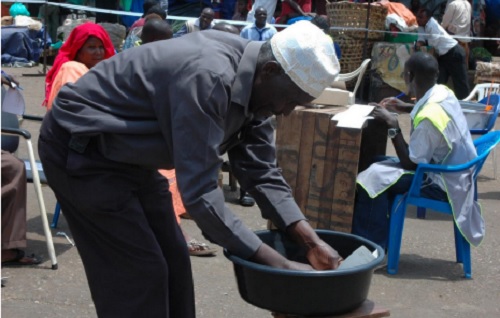
There were 10,595 parishes and 70,626 villages in the 2018 elections but these are estimated to have grown to 71,216 villages and 10,717 parishes for the 2023 election following new demarcations. In 2026, there is every chance the number of villages and parishes will have shot up. Byabakama said the cost of the general election has to inevitably go up unless we have a reduction in the population.
Building on success
The EC’s Strategic Plan seeks to build on the successes of the preceding plan to consolidate the conduct of free, fair and credible elections, and promotion of good governance and security, before, during and after elections.
Byabakama told the stakeholders comprising senior government officials, security agencies, political party representatives and civil society that the EC’s Strategic Plan is aligned to the government’s National Development Plan III governance and security programme which seeks to strengthen citizens’ participation in democratic processes to stimulate good governance and effective citizens’ representation at national and local government level.
Within the strategic plan is the roadmap for the country’s upcoming presidential, parliamentary and local government elections which are scheduled for 12 January and 9 February 2026.
Paul Bukenya, the spokesperson for the Electoral Commission says the next three years are referred to as “the roadmap years.” “These are critical years over which we conduct various activities leading to the General Elections.”
“The roadmap stipulates what we are going to do between now and March 2026 up to May 12 when the current term of office expires; we are going to be highlighting what we are going to do over the next three years which are critical in the electoral calendar,” he added.
“We cannot have General Election activities conducted in one financial year. So, we fund it in a phased manner,” Bukenya said, adding that, “The strategy is meant to set all stakeholders into motion.
“Aspiring candidates, political parties, the government, civil society all need to know so that they start planning for funding. The roadmap is a clear reminder to all stakeholders to start planning to ensure a smooth democratic process.”
Byabakama also noted that the EC’s review of the two previous strategic plans (2015/2016-2021/2022) showed improved services and performance in management of elections, voter participation, inclusive stakeholders’ outreaches, political party activities, deployment of innovative tools and systems as well as improvement in delivery of election materials.
However, the EC noted that there remains noticeable constraints and challenges, including enabling laws, failure to adhere to the deadline for creation of administrative units, the COVID-19 pandemic, voter apathy resulting into low turn-up, inadequate and late release of funds, inadequate tools and equipment for mobilizing citizens to participate in elections, and misinformation by some sections of the public on electoral activities.
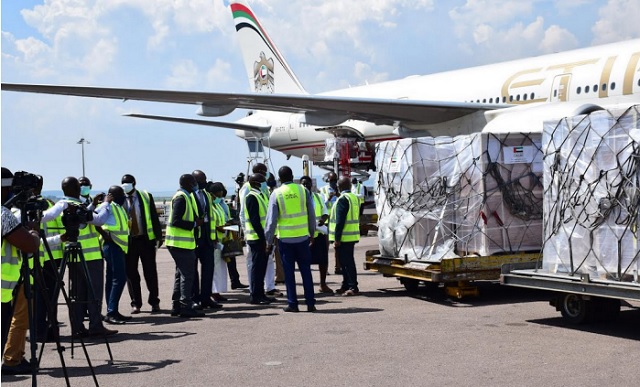
“There are anticipated risks that might impact on the work of the Commission, including under funding of electoral activities, inadequate resources and facilities for the implementation of the strategic plan, new policy changes which may undermine management of elections, late enactment/amendments of enabling laws, continuous creation of administrative units that constrains the EC plan and the budget, the COVID-19 and any other pandemic.”
Ugandans in the Diaspora have also been pushing for their participation in the electoral process and Byabakama says this is something the EC is looking into. The other groups are prisoners who in the past have not been able to vote.
“There was growing concern that Ugandans in the diaspora, inmates and those deployed to work on polling day (security, polling officials, EC staff), were disenfranchised from exercising their voting rights. The commission is therefore carrying out a comparative analysis to ascertain how other countries enforce the right to vote for such persons.”
That benchmarking process is already underway and is expected to go on until September this year. Should the government go ahead to release the required financial resources on time, the EC expects to procure materials, services for demarcation, re-organization of polling stations between April and June 2024.
The field demarcation of constituencies and electoral areas and re-organization of polling stations will take place in July 2024 while display of national voters’ register will take place between April 18-May 8 in 2025. The presidential, parliamentary and local government elections are scheduled for 12 January and 9 February 2026.
With exactly 30 months to go ahead of the next cycle of general elections, it remains to be seen whether Justice Byabakama’s roadmap will inspire confidence within a population that the EC itself says is becoming apathetic towards the electoral process.
However, Godber Tumushabe told The Independent that, “Ugandans are not apathetic towards the electoral process; rather, it is the current regime that has bastardised the electoral process and the population now perceives the entire process as no longer meaningful.”
 The Independent Uganda: You get the Truth we Pay the Price
The Independent Uganda: You get the Truth we Pay the Price


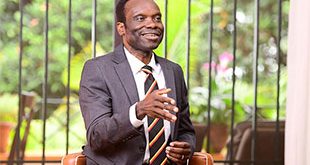
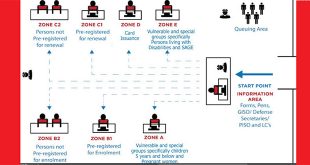
This is uganda